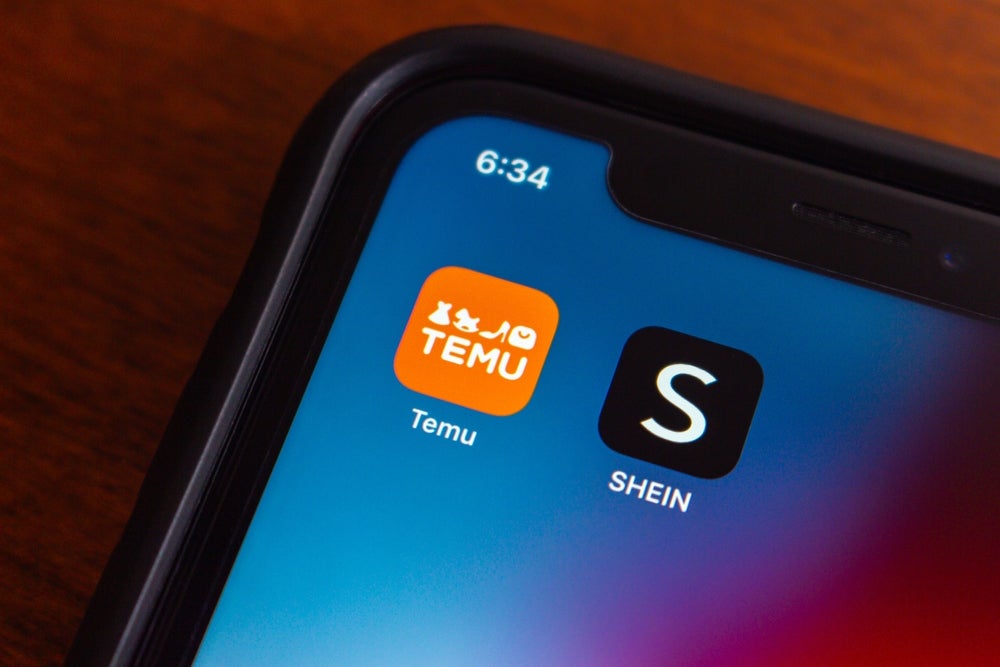The SNL comedy sketch, which is designed to look like a clothing commercial opens with a voiceover announcing “fast fashion from China. Buy online now!” Trendy clothing pieces then flash across the screen with price tags such as $10 for a dress $5 for a pair of shoes. The voiceover then makes statements such as the brand’s products are “not made with forced labour”.
GlobalData retail analyst Neil Saunders tells Just Style the recent SNL comedy sketch is a criticism of consumers who buy fast fashion mindlessly without thinking about how the products are so cheap as much as it is about the alleged supply chain issues” of ultra-fast fashion giants such as Shein and Temu.
The skit is based on a fake fast fashion brand called Xiemu, however National Council of Textile Organizations (NCTO) president and CEO Kim Glas believes the parody “illuminates the breadth of problems related to certain Chinese e-commerce companies that have been linked to forced labour in their supply chains.”
Is SNL shaming consumers for buying fast fashion?
One character in the commercial speaks of a “gasoline” smell coming from an item of clothing and in another Hollywood actor Jake Gyllenhaal has a nosebleed after sniffing his lead-free shirt. Glas suggests this highlights the ramification of consumers “unknowingly purchasing toxic products or products made with slave labour”.
While Saunders points to the way it highlights consumers ignoring the way products are made adding: “People do not change habits if buying cheaper fashion benefits them financially.”
Will the SNL skit have any effect on Shein and Temu?
Saunders is also sceptical about the wider repercussions of the parody. He says the video is ”not a serious piece of content” and doubts brands like Shein or Temu will face much impact, stating: “People will laugh about it and then forget it.”
Access the most comprehensive Company Profiles
on the market, powered by GlobalData. Save hours of research. Gain competitive edge.

Company Profile – free
sample
Your download email will arrive shortly
We are confident about the
unique
quality of our Company Profiles. However, we want you to make the most
beneficial
decision for your business, so we offer a free sample that you can download by
submitting the below form
By GlobalData
Neither Shein nor Temu responded to Just Style’s request for comment and SNL was also contacted but the company did not respond at the time of going to press.
The United States Fashion Industry Association (USFIA) president Julia Hughes admitted to Just Style SNL’s satirical sketch made those at the organisation “laugh” but she believes it also succeeded in raising several very serious issues.
She explained: “American fashion brands and retailers – USFIA members – are committed to providing customers with quality products that meet all environmental and social compliance standards, as well as offering fashion at a fair price. We don’t want our customers to assume that all brands cut corners.”
Saunders points out that Shein and Temu customers probably aren’t the “core” SNL audience and claims the skit “just shows what everyone already knows”.
He believes the key message is that cheap fashion comes at a cost and although the satire packs a punch it doesn’t reveal anything new.
Whilst he says it makes a serious point, ultimately there is an “out of sight” and “out of mind mentality” at play.
Is this a wake-up call on trade laws?
The skit alludes to US trade rules enabling non-compliant fake brands to sell products to US consumers.
Saunders argues that while the narrative may portray this as just an American issue, it is not unique to the US. Of course, he adds: “The US tends to take a less interventionist approach because it is more favourably predisposed to free markets”.
NCTO on the other hand argues Chinese e-commerce fashion companies in particular have “aggressively used a trade loophole like de minimis to ship undervalued and largely uninspected products to the US market, according to several studies and news reports.”
The organisation’s fight to close the de minimis loophole continues with Glas noting how the “outdated” trade provision rewards companies like fake brand “Xiemu” with duty-free treatment and “hurts” the US textile industry and its regional trade partners.
By undermining all trade enforcement of forced labour and other abuses and perpetuating “egregious labour conditions” and IP theft Glas is eager to stop the de minimis trade law from devastating businesses that “play by the rules.”
“We need to worry about it, and we need to close this loophole now,” she pleads.
While the USFIA’s Hughes adds: “When there are brands that don’t meet these ethical standards, we support strong enforcement.”
In the lead-up to the 2024 US elections, the US Department of Homeland Security (DHS) has been under pressure to toughen up its Uyghur Forced Labour Prevention Act (UFLPA).
In March US Customs and Border and Protection (CBP) began applying more stringent import checks on the Enforce and Protect Act and e-Allegations programme with insights on country of origin, volume and types of trade violation.
Through this platform, both the trade community and the general public can flag potential violations from unfair trade practices to products that may pose threats to health and safety.
Saunders highlights that outside of the US other countries are also debating trade policies for fast fashion marketplaces including France, which has been looking at ways to tax cheap fashion.
While one SNL parody is unlikely to move the needle on its own, Saunders argues that buying cheap and not asking too many questions is an “already very normalised” aspect of consumer behaviour.


